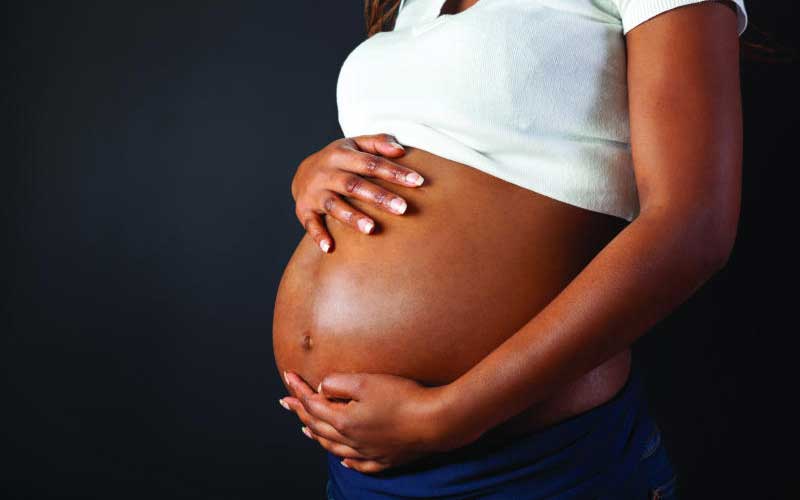
Not a week passes by without lifeless bodies of at least two babies being retrieved from Nairobi and Ngong rivers
Lost in the din of ordinary struggles and scandals pounding the Kenyan society, the story of Kenya’s growing cases of infanticide -- killing of healthy newborns -- is slowly being buried.
But the truth of it, like an eyesore, is sticking out for all to see. On January 21, two babies still fresh on their umbilical cord were retrieved from a trench in Laini Saba Kibera.
On Thursday last week, The Standard reported of a couple that confessed to strangling their baby to death for lack of food and finances.
A day earlier, Kenyatta National Hospital (KNH) placed an advert for a baby who had been rushed to the facility after being rescued from a river.
Last year, there were many cases of women giving birth and throwing their newborns in pit latrines.
According to African Population and Health Research Centre (APHRC), 40 per cent of pregnancies are unwanted in developing countries. Fifty five per cent of these pregnancies end up in abortion.
Brenda, 24, came close but ended up abandoning her baby girl in unknown place. She first got pregnant while in class 8, but her parents helped her to abort. She got pregnant again while in form three. This time, her parents chased her away.
“I left it at the entrance of a big beautiful church. I thought she will be safe there,’’ she said.
Wiping her tears, she says she hopes her baby is now grown and that they will meet one day. A mother of two now, regrets her actions, saying she was young and the stigma of having a baby without the support of parents or boyfriend was overwhelming.
Her story is no different from that of Lydia, 23, from Katekwera. She narrates how her boyfriend, a criminal being sought by the police, disappeared in 2017, leaving her with a five-month old baby.
Chang’aa dens
Unemployment and poverty led her to drinking and spending more time at chang’aa dens with her baby. One day, one woman requested to take care of the baby and for Sh5,000, she let go of the fruit of her womb.
But she has her own infanticide story.
“A friend I was staying with gave her baby alcohol and the baby slept. We did not know that it had died. Later, after we had sobered up, we realised the baby could not wake up. We were attacked by neighbours and we had to run away,” Lydia says.
Stories of women killing their children is now music to Jamia Adul, an activist at Kibera Justice Centre. She has been working on these cases for 13 years now.
Ms Adul unfurled an archive of incidents of babies poisoned with concentrated coke powder and men who partake in the killings after luring babies off their mothers.
Last year alone, she handled 15 cases of children abandoned on roadsides and dumpsites. She is taking care of one such child.
Queen, a delivery nurse at AMREF Health Centre in Kibera, says a woman came to deliver at her house one night and asked her to kill the babies. She chose to keep them until she became stable.
“The woman has not come back for her children and I don’t know where she went,’’ she says.
Aggrey Marita, a reproductive health provider at Family Health Options Kenya (FHOK) in Kibera, says cases of women trying to kill their babies are common.
“A patient came with a baby who had a burned throat. When I asked her friends, they told me she had tried killing the baby by giving it hot milk,’’ he says.
Abdi Guyo, who has worked in the clean-up of Nairobi and Ngong rivers, took Saturday Standard to a bridge separating Mukuru kwa Njenga slums and Sinai where River Ngong flows beneath. A heap of dirt and skeletons of dead animals is all you can see.
“A week doesn’t end without a baby or two being thrown into the river. The other week, I got three fetuses here. Towards the end of last year, I found two babies dumped under the bridge connecting Mukuru kwa Njenga and Kware,” he said.
“They were well dressed and wrapped in shawls. We never report these incidences to the police post at Kware because they have become a normal occurrence until the police got tired and told us to bury them just beside the river. So we have a pastor whom we call to pray for the young souls then we just bury them there. Last year, we buried 21 babies just along this river as there is no one to claim them,’’ he said.
Odongo Julius, a garbage collector who works with the Nairobi City County, says most of these babies are wrapped in garbage bags so you cannot tell you are carrying a dead body.
“When offloading the dirt from the lorry at Dandora is when you notice the dead infants. It is a common occurrence, especially in the area I collect garbage from, that is Lang’ata and its environs,” he said.
Pills
Elizabeth Wanjiru from Kibera blames lack of affordable family planning methods in her area for the rising cases of dead infants.
“Sometimes back family planning pills were free in this area but now they are sold expensively, making many women unable to afford them. Most abortions here are done by youths who lack knowledge of family planning,’’ she said.
Quinter Akoth, 23, was stopped by Kayole residents from throwing her now two-year-old baby in the river. She tells me she doesn’t trust family planning methods.
“I came to Nairobi three years ago. My family was not treating me right so I moved in with my then boyfriend. When I got pregnant, he deserted me and I almost disposed my baby,’’ she said.
 The Standard Group Plc is a multi-media organization with investments in media
platforms spanning newspaper print
operations, television, radio broadcasting, digital and online services. The
Standard Group is recognized as a
leading multi-media house in Kenya with a key influence in matters of national
and international interest.
The Standard Group Plc is a multi-media organization with investments in media
platforms spanning newspaper print
operations, television, radio broadcasting, digital and online services. The
Standard Group is recognized as a
leading multi-media house in Kenya with a key influence in matters of national
and international interest.











